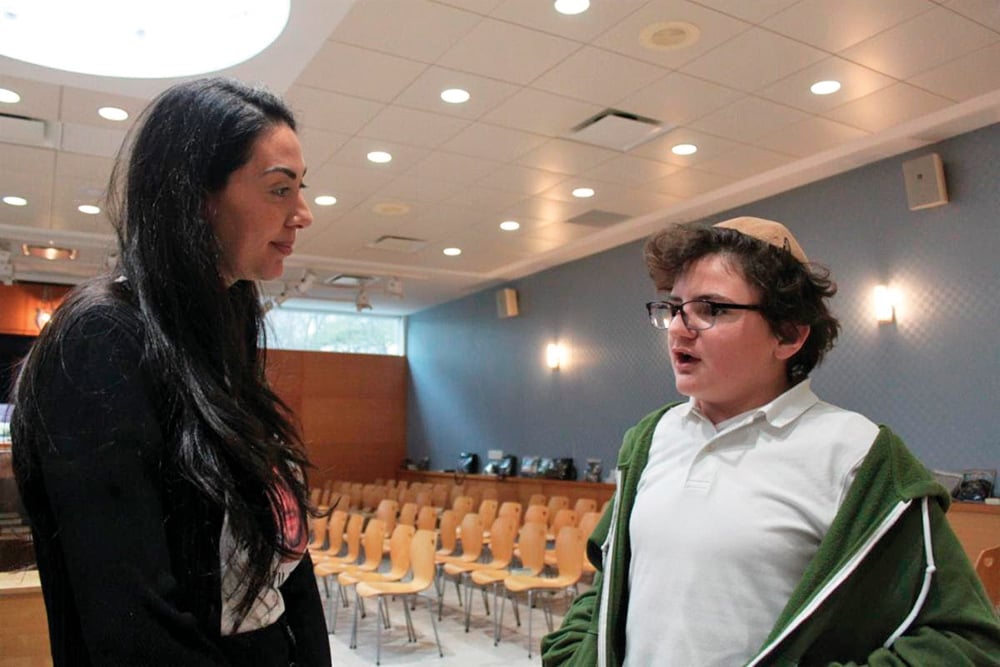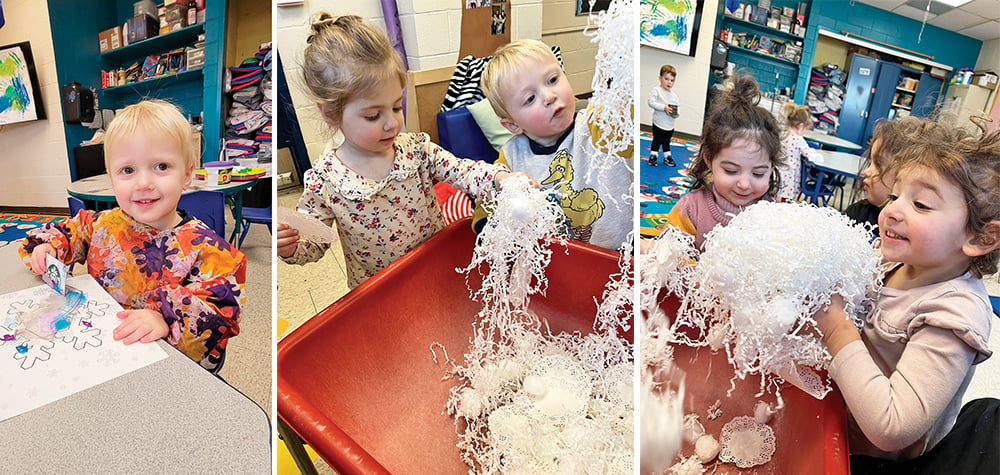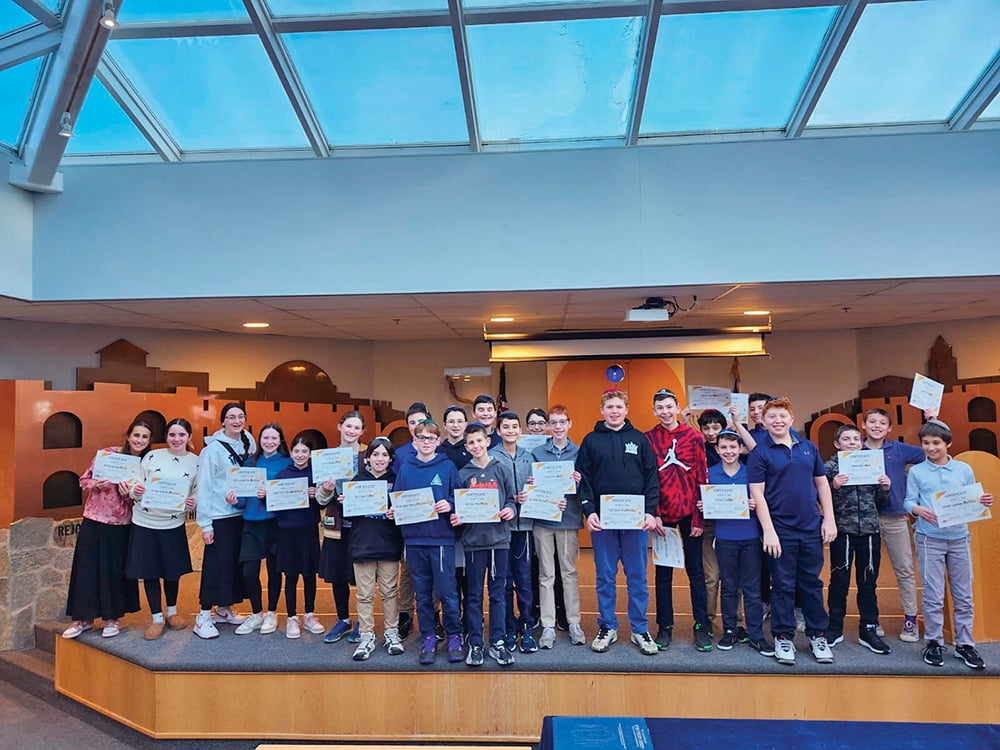December is the time of year when schools most often teach about how Jewish communities have navigated antisemitism. Typically, these conversations center around more-comfortable-to-talk-about historical antisemitism—in the context of the nearly 2,200-year-old Chanukah story—but as antisemitic incidents become more frequent in our own time, contemporary bigotry has unfortunately begun to receive a greater share of the attention. The message to students must be clear but nuanced: how we can be defiant but not retaliatory, and feel pride in ourselves without shaming others.
Our school had an experience recently that required us to highlight the very practical nature of antisemitism education. We are among the few local Jewish high schools whose athletic teams participate in the public-school league. This was a proactive choice that was made when our high school was established 21 years ago, with the goals of expanding our students’ interactions outside the Jewish community and competing at the state-championship level. (We have reached state-level postseason play in such sports as baseball, cross country and soccer.) The league is an outstanding partner in accommodating our need not to schedule competitions on Shabbat or Yom Tov, and the interactions between our students and their public-school counterparts have generally served to enhance the experience of our community.
One recent afternoon, our boys varsity basketball team was scheduled to play against a local public high school team. A few hours before the planned tip-off time, one of our students discovered a social media message, posted by a player on the opposing team, highlighting their upcoming game against The Leffell School. The posting incorporated a song by Kanye West (also known as Ye), an artist who has been in the news recently for his association with antisemitic views. And while we can’t know for certain what the intentions of this poster were, the effects are beyond dispute: The music of Kanye West, particularly in the context of an advertisement for a basketball game against a Jewish school, is unduly provocative and offensive within our community.
Within minutes of learning about this post, the administration of the opposing school made the decision to forfeit the game—but still to bring their team to our campus so that they could apologize in person and express an understanding of the impact that this reference on social media could have within a Jewish community like ours. Numerous administrators, including the assistant district superintendent, athletic director and others, admirably rearranged their schedules to be able to accompany the players and coaching staff.
During the encounter between the teams, several students and adults offered powerful words of apology and understanding, after which the players shook hands and chatted with one another. Our team represented our school and the Jewish people with pride: They demonstrated graciousness, dignity and strength, as well as a willingness to forgive—but only after everyone clearly comprehended what had brought about the depth of the offense in the first place.
Of course, our students are aware that not all personal experiences with antisemitic sentiments result in such immediate opportunities for accepting responsibility, learning and reconciliation. They know that from the time of the Maccabees through the present day, threats against Jews and Judaism have brought about enduring physical, emotional, religious and existential harm; unfortunately this will likely continue in the future. But my hope is that relatively minor (in the scheme of things) experiences like this one on the basketball court will empower them with the confidence to believe that they can withstand personal encounters with antisemitism with their resilience and self-esteem intact—and that they can be leaders in navigating such situations as they prepare for life on the college campus and beyond.
Both in the moment and since, I have expressed admiration for the values demonstrated by my administrative counterparts at the other school for the gravity that they appropriately ascribed to this incident and the quick, decisive action that they took to address it. Is that enough, however? One of the lessons that we emphasized to our students and their families in the wake of the episode was the importance of discussing and processing what had taken place without seeking to embarrass and disparage the opposing school, its players or its leadership. As the Talmud says in Tractate Bava Metzia 58b, causing public embarrassment to one’s fellow can be considered as akin to shedding blood. You have surely noticed that even in this article, I have chosen not to name the school involved.
Some in our community took exception to this approach, however. Understandably, they argued that while this individual student’s action may have been isolated or rooted in ignorance, the broader culture that enables such conduct must be called out publicly and discussed in the open—even at the risk of engendering a degree of shame—if it is ever going to change. While I am not personally convinced of this perspective, its articulation has brought about a valuable thread of discussion within the broader conversation about this incident.
Around Chanukah time, students at all Jewish schools learn about the historical prevalence of antisemitism: that it can be overt or subtle, that it can target religious practices or personal livelihoods, that it can stem from government edicts or popular culture, and that it can exist even within Jewish communities themselves. Over the past couple of years in particular, students and educators have seen firsthand that such experiences are not only historical, but a part of current events as well. As we approach Chag Ha’urim, if we as educators are to bring any light to the difficult conversations about this dark topic, it will surely come in the form of constructive conversations and feelings of communal pride that emerge from experiences like that of our boys varsity basketball team.
Michael A. Kay, PhD is head of school at The Leffell School.













